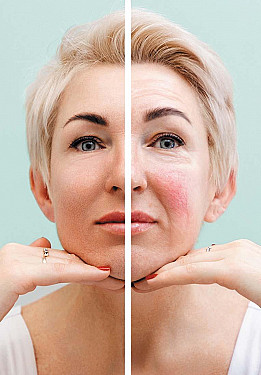Zinc oxide shows no link to skin damage
In the journals

Zinc oxide (ZO) is one of the most effective ingredients in sunscreen, but previous studies have suggested it could potentially damage skin cells. Now, a small study in the February 2019 Journal of Investigative Dermatology has found that ZO nanoparticles don't penetrate the skin or damage skin on a cellular level even with repeated applications.
ZO is one of 17 active sunscreen ingredients approved by the FDA. ZO offers broad-spectrum protection and shields against both UVB rays, which cause sunburn, and UVA rays, which penetrate more deeply and are more likely to damage cell DNA and increase the risk of skin cancer.
In the study, researchers applied 1/4 teaspoon of ZO sunscreen on the forearms of people over five days — once every hour for six hours on one arm and once daily on the other. Afterward, they used fluorescence imaging technology to examine the skin. They found that the ZO nanoparticles remained within the epidermis (top) layer of the skin and did not penetrate to the deeper dermis level; nor was there any sign of cellular toxicity.
The researchers suggest that people not shy away from using ZO sunscreen, especially since it is such an effective way to prevent sunburns and protect against skin cancer.
Image: © Jupiterimages/Getty Images
Disclaimer:
As a service to our readers, Harvard Health Publishing provides access to our library of archived content. Please note the date of last review or update on all articles.
No content on this site, regardless of date, should ever be used as a substitute for direct medical advice from your doctor or other qualified clinician.















